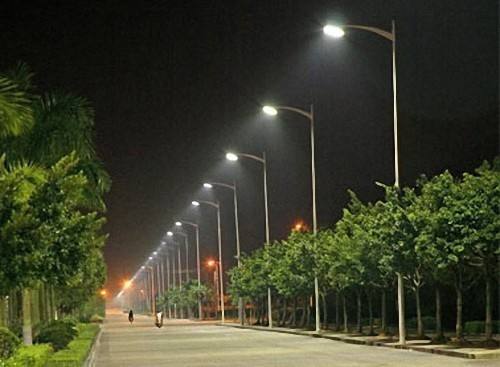
Dijon, famous for zesty mustard, is now spreading something else with vim and vigor: smart city technology. The Burgundy city in eastern France is joining with neighboring towns on a €105 million ($126 million) information technology project intended to improve operations and save money on street lighting, traffic management and public safety, while generating data for other services across the metropolis.
Interested in articles & announcements on smart city technology and SSL?
In an ambitious 12-year project led by the €31.7 billion ($38 billion) construction and telecoms conglomerate Bouygues, Dijon Métropole will upgrade 34,000 street lights to LED, which it will connect to a central management system that will also tie into traffic lights, security cameras, buses, and other assets in an Internet of Things (IoT) scheme.
The system is expected to cut public lighting costs by 65% using the Muse control system from Citelum, a subsidiary of €71.2 billion French state-owned utility giant EDF. Citelum specializes in lighting management, and in using the lighting infrastructure to underpin Muse-based urban digital services such as monitoring traffic, parking, air quality, climate, crime, and other things.
“Muse will connect all the city’s actors,” Citelum said of Dijon. “On the platform, the city’s public services will have access to information about all the infrastructures of the municipality, efficiently plan maintenance interventions, optimize costs management, and inform their partners on their works progress. Citizens will also have a tool to contact their city’s public services from their mobile phone and signal any event on the streets requiring a quick and coordinated management.”
Dijon Métropole is an administrative entity formed in April, centered on the city of Dijon and including a total of 24 towns and cities. It covers about 2,800 square miles with a combined population of 256,000.
“Operational from 2018, the project will make technical equipment (traffic lights, street lighting, CCTV, street and road maintenance, etc.) more efficient, optimized, and pooled, thus facilitating public spaces management,” said Suez, the €15.3 billion ($18.3 billion) water and waste management giant — which along with €12.5 billion ($15 billion) technology and outsourcing firm Capgemini — rounds out the corporate foursome in Dijon, going along with Bouygues and EDF's Citelum.
The lights and other connected things will collect data that Dijon will make open to the public and which will lead to further smart city applications, Suez noted. “Thanks to digital data generated by connected public facilities, Dijon metropolitan area wants to develop a unique smart city initiative, offering its residents new public services and open urban governance based on open data.”
The control center is scheduled to come online within a year. Eventually, the “connected management of public spaces” project will put geotags on 205 vehicles and radio tags on 130, Suez said. About 180 buses and 113 intersections will have connections that prioritize bus traffic, and 180 buildings will tie into the central management system, with 13 of those due for renovation. In total, the project will entail about 87 miles of new fiber-optic cable.
LED lighting, with its digital nature, is rapidly converging with information technology and networks, and is driving myriad partnerships. Just this week, Philips Lighting teamed with communications firm American Tower Company, and LED lighting specialist Acuity Brands got together with wireless networking firm Silver Spring Networks. Like with the Bouygues-led team, both alliances are aimed at outdoor applications geared toward smart city services.










Service Hotline
Work Time:Mon-Fri 9:00-18:00
UTC+8

Sinoexpo Digital Platform
Copyright 2006-2024 Shanghai Sinoexpo Informa Markets International Exhibition Co., Ltd. All rights reserved
沪ICP备05034851号-77
 沪公网安备 31010402000543号
沪公网安备 31010402000543号